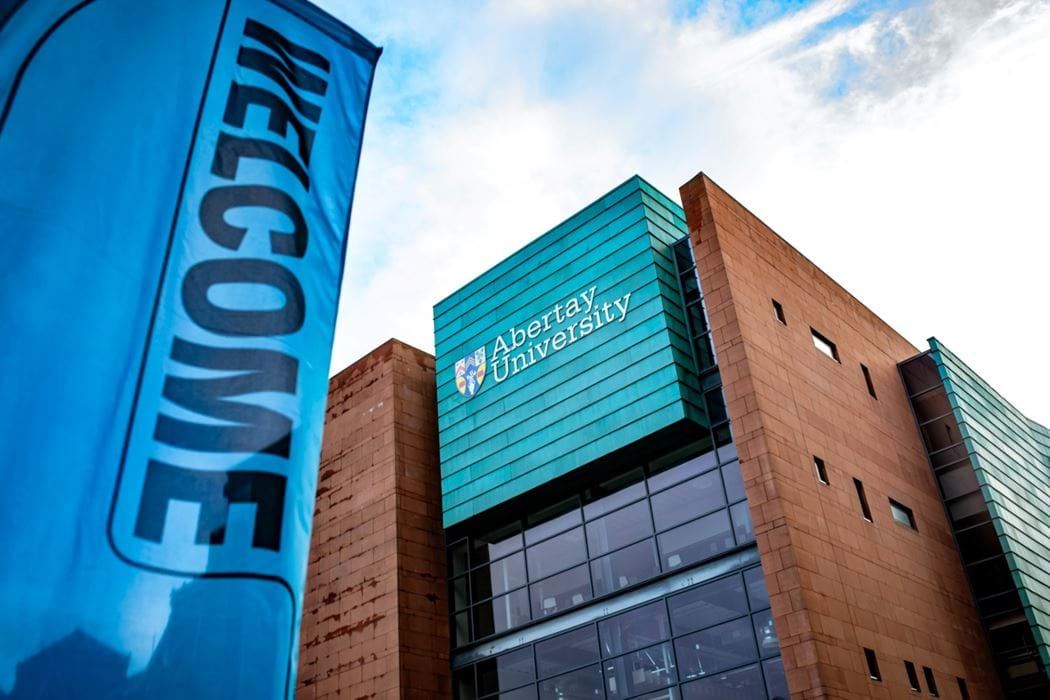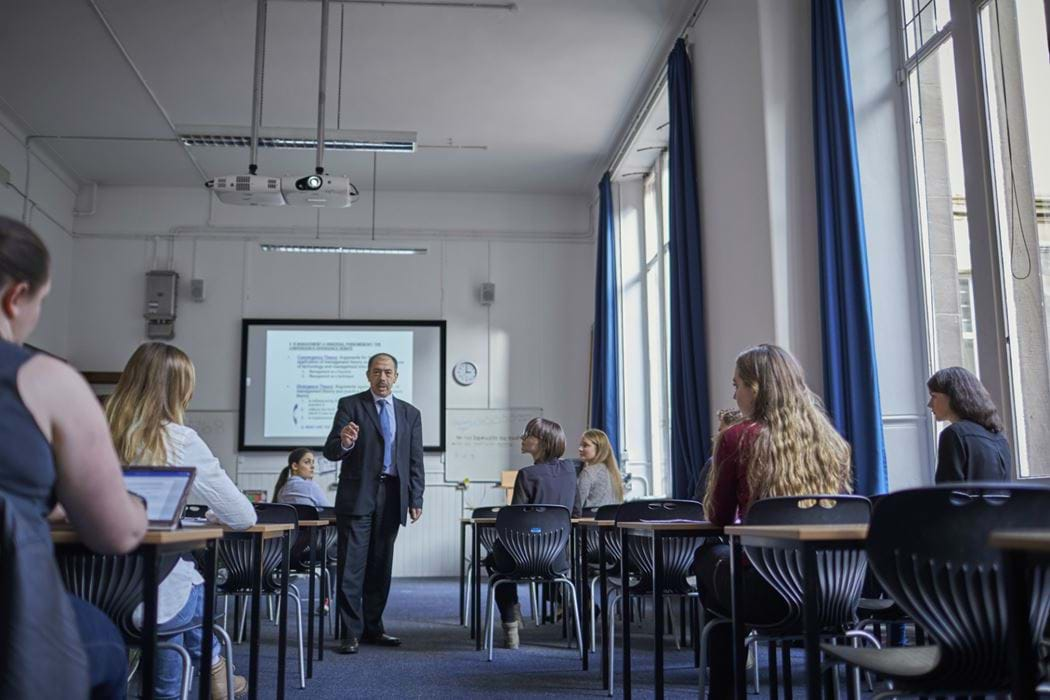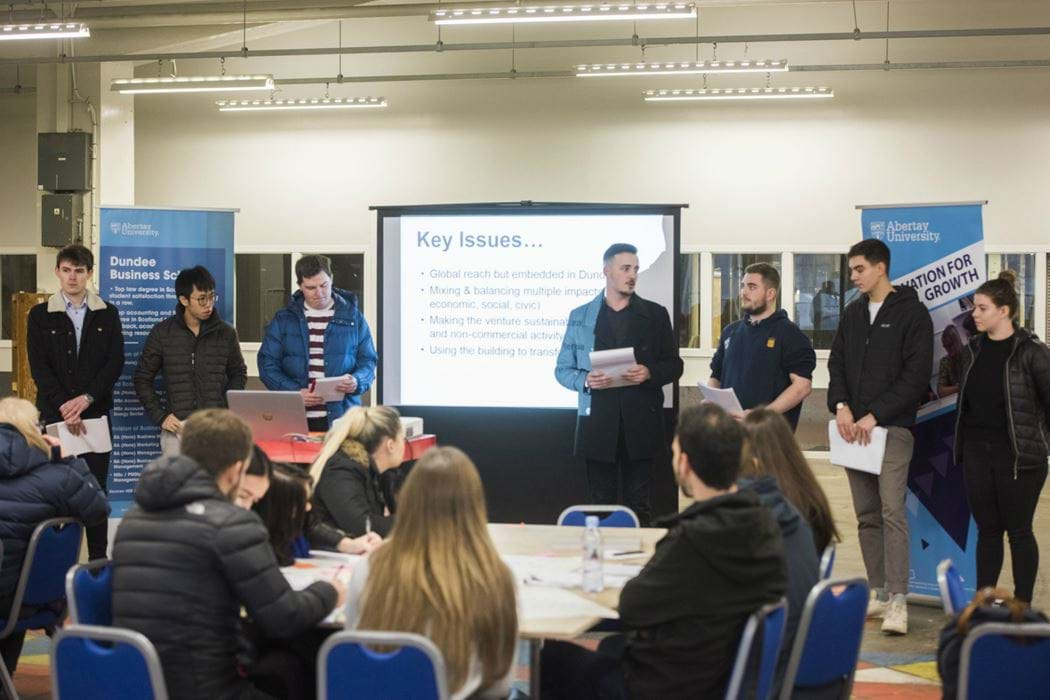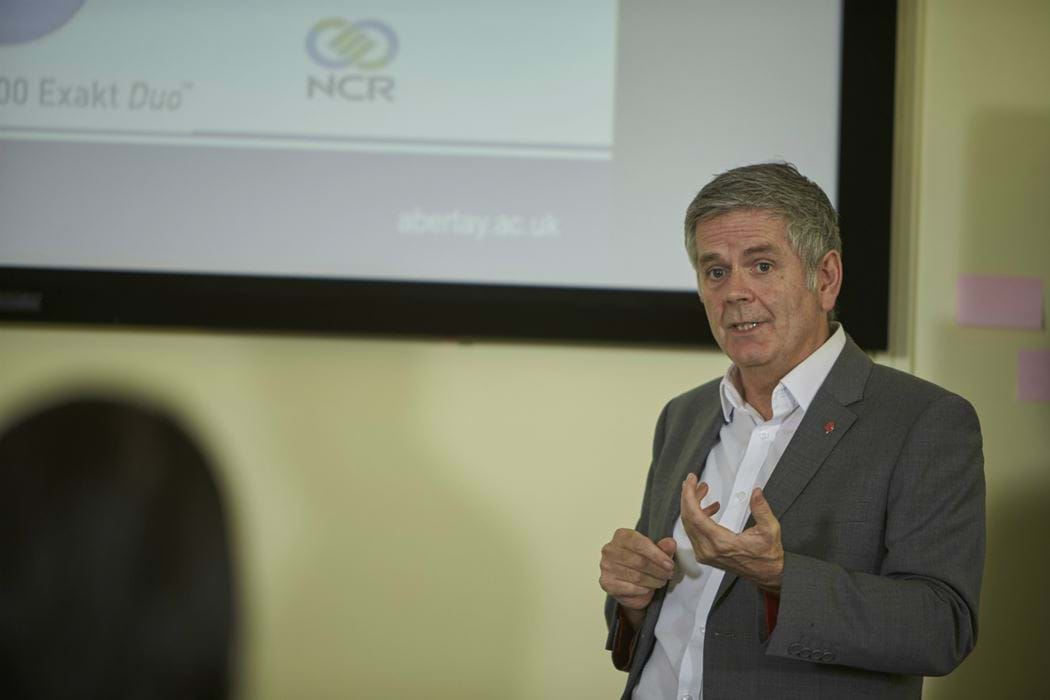Overview
Why study Business Management at Abertay University?
Develop all the business insights and skills you need to position organisations for a sustainable future.
Through our outstanding industry links, you will find out how businesses really operate through expert guest speakers, projects tackling real life business problems, work placements and offsite visits. We put employability at the forefront by focusing on current themes in business management, plus you can apply to study abroad as well.
You will develop the knowledge and transferrable skills required to become a professional manager.
Work placement and study abroad options
By going beyond the classroom and working on extra-curricular activities such as the IBM international Business Challenge, you’ll gain a deeper understanding of the complexities of business life. You’ll learn how to improve productivity, performance and profits.
So whether your ambition is to start your own business or work within an organisation, your skills will be relevant all over the world. We teach you how to thrive in today’s fast-paced global economy.
Studying at Abertay is not just about getting a job, it's about having an educational experience that'll lead you to become a professional in a field of your choice - whether that be accounting, marketing, business or human resources.
You can tailor your studies to suit your interests and career plans. This flexible degree is part of a larger portfolio of 12 courses covering business, accounting and marketing.
Abertay is widely regarded as THE place to come for high quality teaching. But don't take our word for it:
-
Scotland's Top Modern University - Student Satisfaction (National Student Survey 2023).
-
UK University of the Year 2021 - Teaching Quality (The Times/Sunday Times Good University Guide).
-
UK Top 10 - Student Satisfaction & Teaching (Guardian Good University Guide 2021).






















